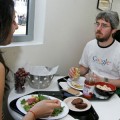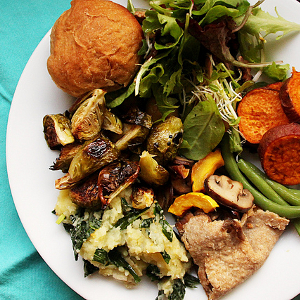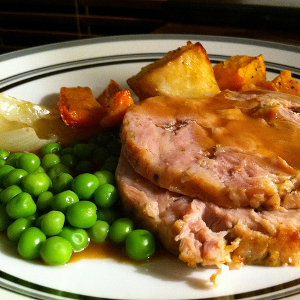Last month, my grocery bill was nearly $2,000. I don’t know if that sounds like a lot to you, but for a family of four with two young kids that seemed like a fortune. Something had to change.
The problem as I saw it was I was shopping for each meal, running to the store several times a week. I knew this was neither efficient nor fiscally wise, so I decided to plan out a week’s worth of menus at once. But then I realized how much time that would take, and I lost interest. That’s when I found eMeals (emeals.com), an online menu-planning site.
The way it works is you choose a grocery store and a preferred diet (vegetarian, organic, low-carb, etc.), and each week you get a week’s worth of dinner entrees with recipes and shopping list included. So easy. It seemed like the perfect solution, especially since each week added up to about $140 in groceries. Throw in breakfast and lunch for $50 a week, and I figured I would spend $200 a week on groceries.
Trouble was the recipes weren’t very good. They were meant to be quick and easy, but they relied on lots of packaged and frozen items. I don’t cook rack of lamb and lobster for midweek meals, but I do like something more interesting than sausage and beans. And speaking of sausage, there was too much meat. Eating meat seven nights a week is too much for me.
So I switched to vegetarian plan, but eMeal’s vegetarian menus were even worse. Last week’s menu included potato and bean salad with chips, pasta salad and pancakes. That’s right-pancakes for dinner. The menus appeared to be written by someone who thought of nonmeat eaters as sensory-challenged. I cancelled my subscription.
Cooking takes time. Working full time and eating well are often at odds, and the food industry preys on us with promises of convenience in the form of frozen dinners, drive-thru takeout and pre-planned menus. And that’s where our good intentions break down. Convenience is the enemy of the good. In Silicon Valley, access to good, fresh ingredients isn’t a problem. Buying real food is ultimately cheaper than junk food (check out this column http://tinyurl.com/6qm4wnh by Mark Bittman for a thoughtful analysis). Lack of time is the challenge. Bittman writes: “Real cultural changes are needed to turn this around. Somehow, no-nonsense cooking and eating-roasting a chicken, making a grilled cheese sandwich, scrambling an egg, tossing a salad-must become popular again, and valued not just by hipsters in Brooklyn or locavores in Berkeley. The smart campaign is not to get McDonald’s to serve better food but to get people to see cooking as a joy rather than a burden, or at least as part of a normal life.”
Cooking can be a challenge, but I haven’t given up and called out for pizza. I now spend one night a week going through cookbooks and preparing a week’s worth of menus that keep me within my budget of time and money.
I’ll share some of the best recipes in the months to come.
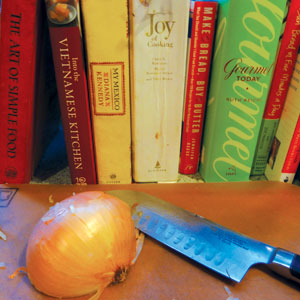
 San Jose Jazz Shakeup
San Jose Jazz Shakeup 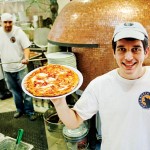 Review: Pizza Bocca Lupo in San Jose
Review: Pizza Bocca Lupo in San Jose 


